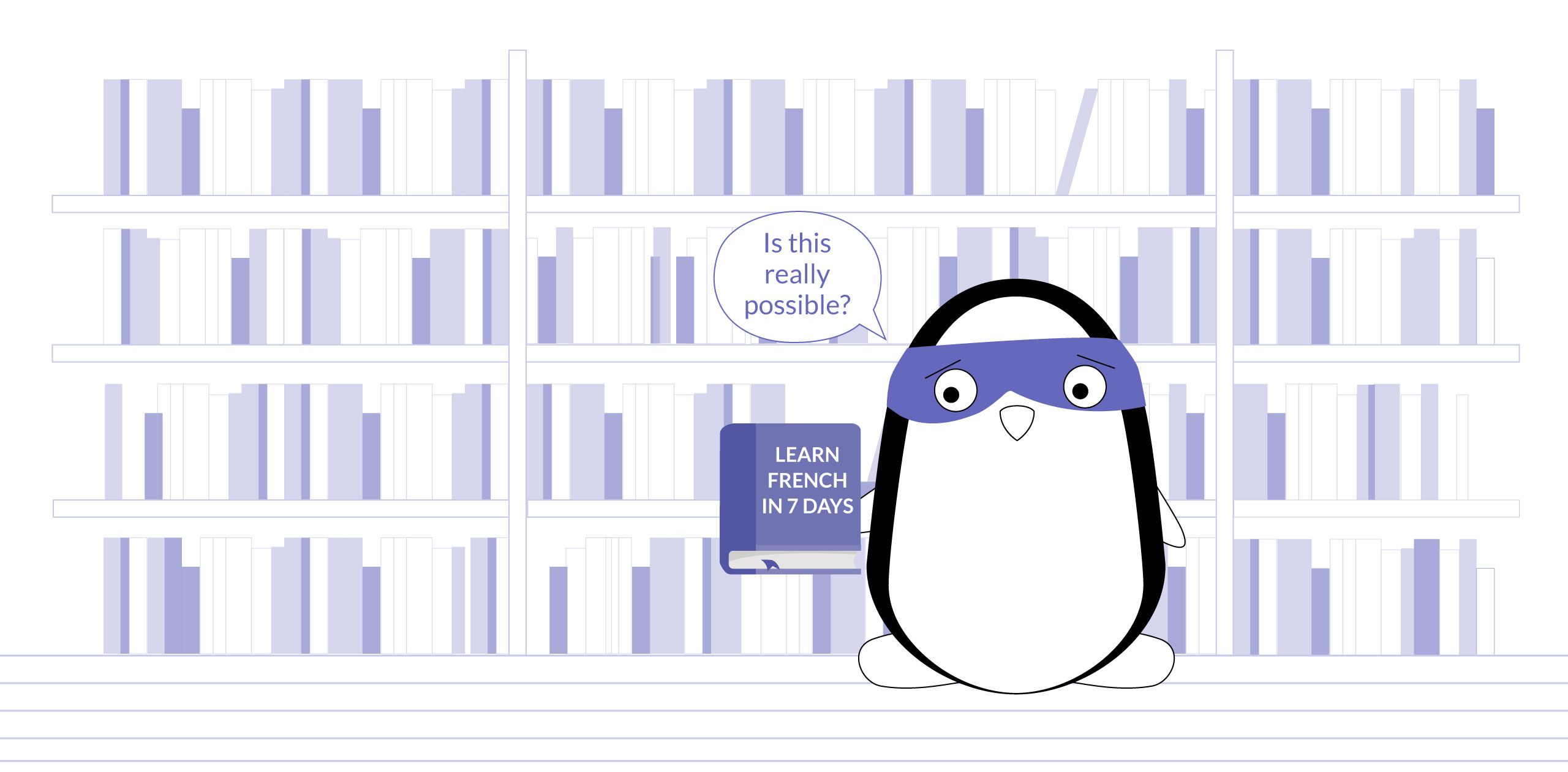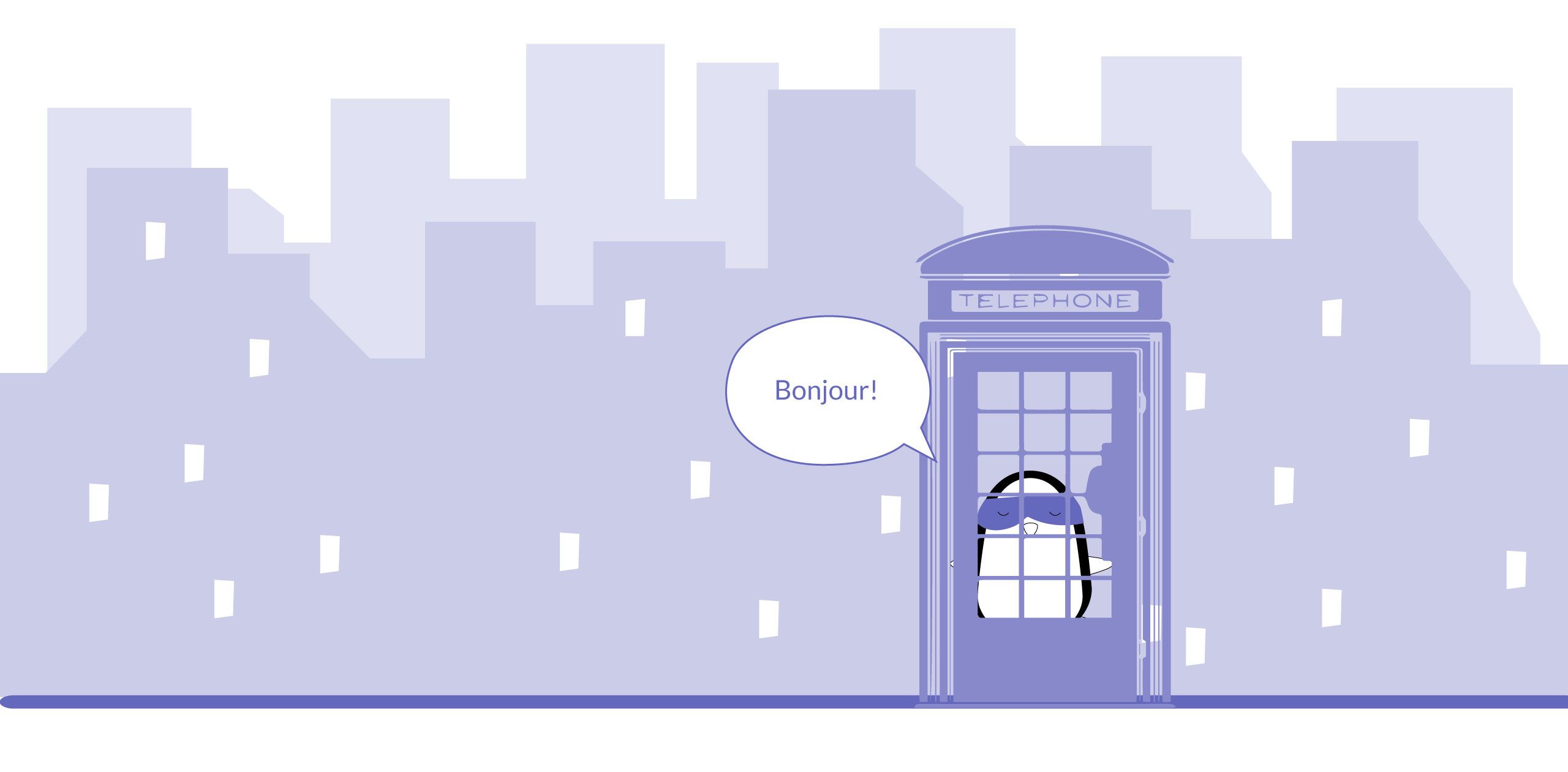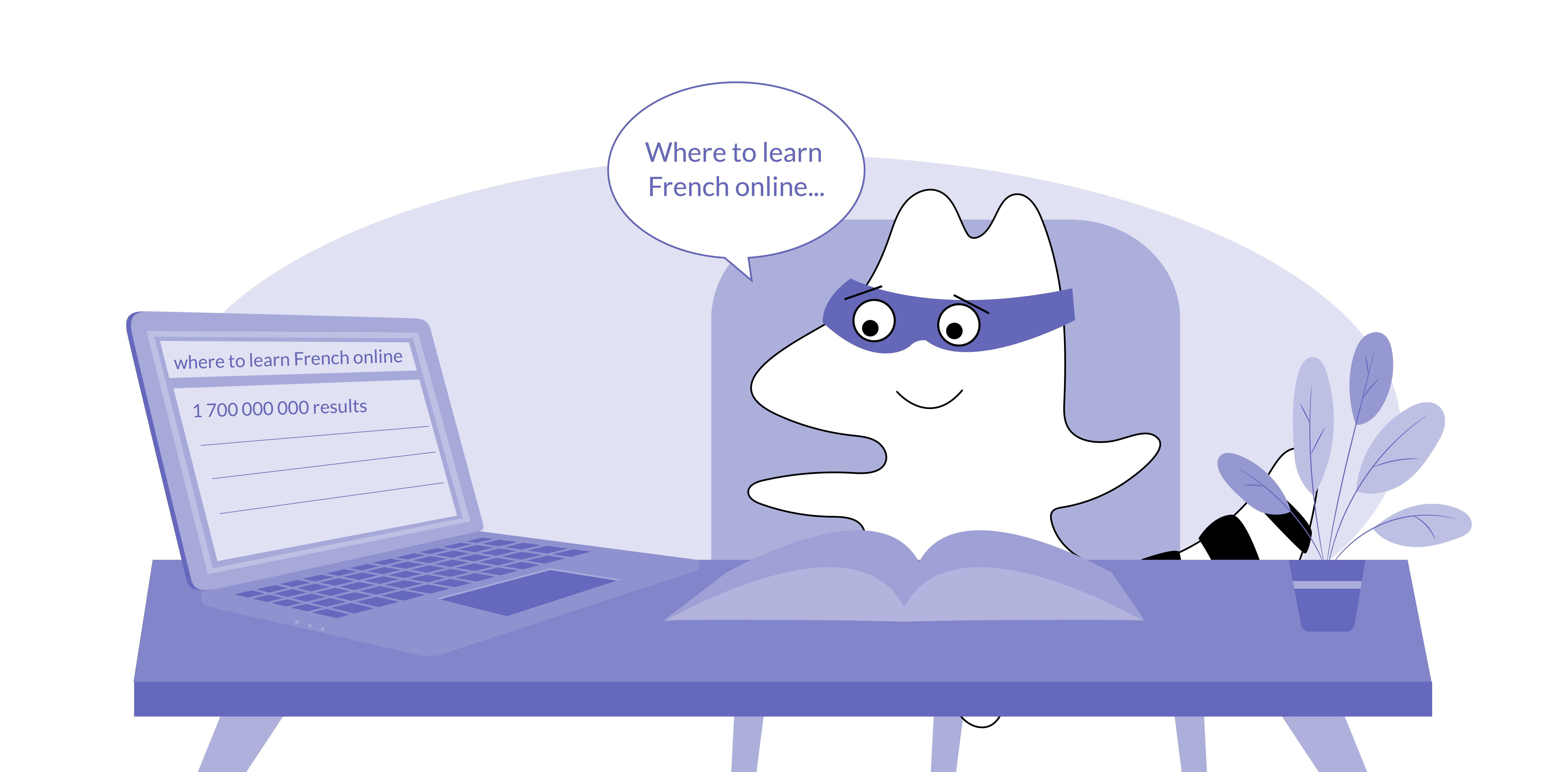
Whether you're a complete beginner, a language enthusiast with a passion for all things français, or simply looking to brush up on your existing skills, there's never been a better time to dive into the world of online language learning. With countless French websites and apps at your fingertips, mastering this beautiful language is now easier than ever!
To help you navigate through the vast ocean of options, we've compiled a list of the top websites to learn French online — each offers unique features and methods, catering to various learning styles and goals. Alors, allons-y!
Learn French with Langster
Duolingo
Duolingo is one of the most popular language learning apps available today, and it's no surprise why. With a fun, game-like interface and bite-sized practice exercises, Duolingo makes language learning feel like a breeze.
The course covers basic French vocabulary and grammar, gradually building up to more complex sentences and conversations. Earn points, level up, and compete with friends as you learn French online with a series of themed lessons!
Pros
- free and easy to use, making it accessible to learners of all budgets,
- fun and engaging interface encourages consistent use,
- focuses on practical conversation skills to help you start speaking French like a native,
- provides personalized feedback on learners' progress and areas needing improvement,
- can be used with a variety of devices and platforms.
Cons
- emphasis on gamification may detract from more traditional language learning methods,
- focuses mainly on vocabulary acquisition,
- no real-world immersion or interaction with French teachers or native speakers,
- no explanations of French grammar rules, only inference through practice exercises,
- limited writing and speaking practice compared to other French courses,
- may not be suitable for advanced learners needing more challenging content.
Babbel
Like Duolingo, Babbel is an app-based language learning tool that focuses on teaching practical conversation skills that can be applied in real-life situations. It offers a range of interactive modules for French learners of different language levels, each one designed to engage students and build their confidence.
The platform uses spaced repetition techniques to reinforce vocabulary and grammar lessons. Babbel also offers speech recognition technology to help improve pronunciation. This French course includes vocabulary, grammar, and even advice on French culture to help learners feel more at home in France.
Pros
- focuses on practical conversation skills in real-life scenarios,
- lessons are broken down into manageable, bite-sized chunks,
- voice recognition technology helps improve speaking and pronunciation skills,
- provides personalized online courses tailored to learners' strengths and weaknesses,
- covers a wide range of topics, including vocabulary, grammar, and cultural insights,
- offers a mobile app, making it easy to learn French on the go,
- affordable subscription fees.
Cons
- exercises can be repetitive, leading to boredom or disengagement,
- no immersion or interaction with native speakers,
- limited feedback on writing skills or advanced French grammar,
- may not offer enough structured support for absolute beginners,
- limited free content compared to other language learning resources,
- some exercises may not be challenging enough for advanced learners.
FluentU
FluentU is a language learning platform that uses real-world videos, including music videos, news articles, movie trailers, and inspiring talks. This website turns these authentic resources into personalized French lessons, complete with quizzes and flashcards to help reinforce new French words and grammar.
FluentU is a great choice for French learners who want to improve their listening and comprehension skills.
Pros
- immersive learning through authentic videos,
- interactive exercises, flashcards, and quizzes reinforce vocabulary and grammar,
- personalized feedback and recommendations to learners,
- a wide range of topics covered, including slang and colloquial expressions,
- focuses on improving learners' listening and comprehension skills,
- available on multiple devices (web, iOS, and Android).
Cons
- can feel too fast-paced for some learners,
- a premium subscription is required for full access.
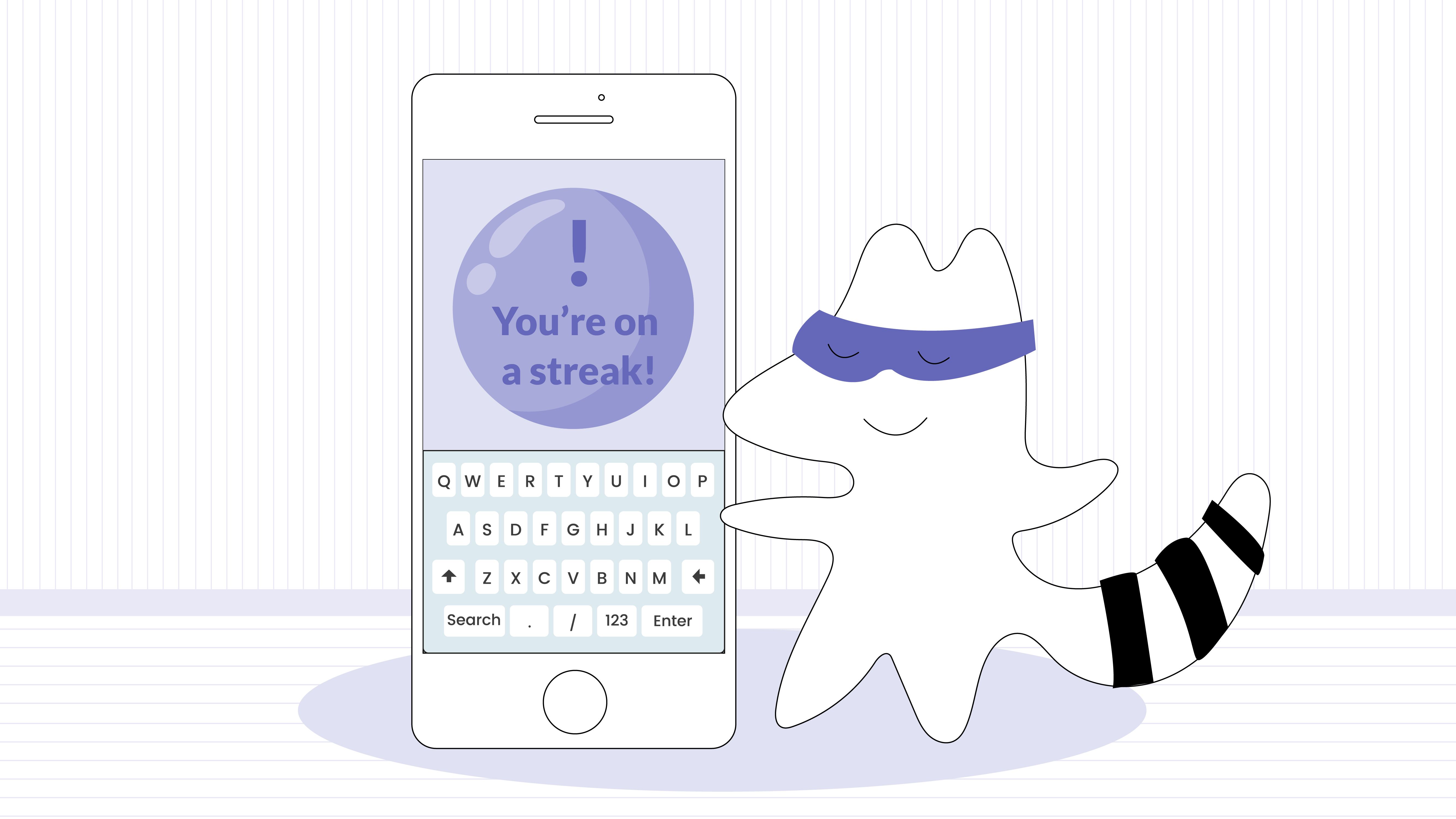
Memrise
Memrise is another popular language-learning app on this list that uses gamification to help you learn French in a fun and engaging way.
Lessons are designed to help learners memorize vocabulary quickly using mnemonic devices and visualization techniques. By using humorous or memorable associations with words and phrases, the platform makes it easier to recall information during conversations.
Memrise also offers grammar lessons and pronunciation practice to help you learn French words in context.
Pros:
- innovative mnemonic techniques for vocabulary retention,
- engaging, user-generated content,
- free basic access.
Cons:
- incomplete grammar explanations,
- advanced levels may require a subscription.
Busuu
Busuu is a language learning app that offers courses in French and other languages. The app provides vocabulary and grammar exercises and also allows learners to practice speaking and listening skills by connecting them with native French speakers.
Busuu offers a comprehensive language learning experience, incorporating reading, writing, listening, and speaking exercises. It also provides personalized feedback to help learners improve their skills.
Pros:
- comprehensive lesson plans incorporating all language skills,
- conversations with native speakers,
- customized study plans.
Cons:
- some features require a premium subscription.
Rosetta Stone
Rosetta Stone is a well-known name in language learning, and its French course is no exception. Rosetta Stone utilizes an immersive learning approach that relies on images and audio cues instead of translations — focusing on core vocabulary and real-world scenarios helps learners to start thinking in French.
In addition, their proprietary speech recognition technology, TruAccent, helps learners fine-tune their pronunciation.
Pros
- immersive learning approach using images and audio cues,
- proprietary speech recognition technology,
- accessible across multiple devices.
Cons
- subscription-based pricing model,
- limited cultural context.
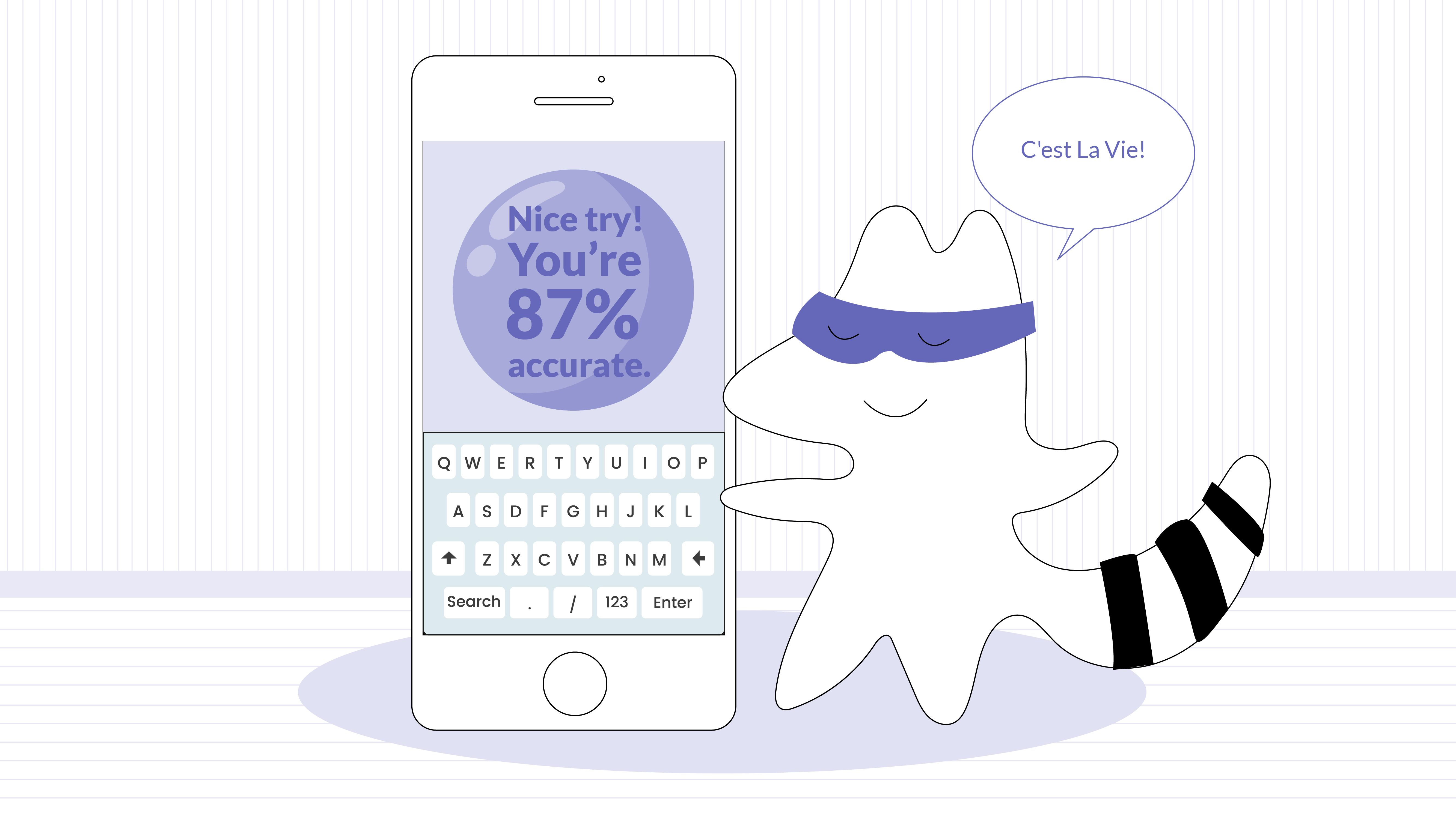
Lingoda
Lingoda offers live online lessons with native-speaking teachers in various languages, including French — both in small groups or one-on-one settings. Its curriculum is designed to meet the standards of the Common European Framework of Reference for Languages (CEFR) and covers speaking, reading, writing, and listening skills.
Lingoda is one of the best websites to learn French today and is ideal for learners who want the structure and personalized attention of a classroom environment but prefer the convenience and flexibility of online learning.
Pros
- small group classes or private lessons with native speakers,
- a structured curriculum for all levels,
- flexible lesson times.
Cons
- relatively higher cost compared to other platforms.
Pimsleur
Pimsleur is a language learning program that focuses on teaching conversational proficiency in a variety of languages, including French. Developed by Dr. Paul Pimsleur in the 1960s, the program uses spaced repetition and organic learning techniques to help learners develop natural speech patterns and build a foundation in the language.
Pimsleur's online French lessons are available in several formats, including digital downloads and CDs. Each lesson features a dialogue in French, with English translations and explanations provided as needed.
The program emphasizes listening and speaking skills and also covers essential vocabulary and grammar patterns.
Pros
- audio-based learning for improved listening comprehension and pronunciation,
- focus on practical conversation skills,
- mobile app available.
Cons
- limited reading and writing practice,
- subscription-based pricing model.
Frantastique
Frantastique is a daily French language learning program that sends personalized lessons to learners' inboxes every day. The program provides humorous, story-driven lessons and adapts to learners' needs over time, focusing on areas where they need more practice and providing feedback on progress.
By sending daily language lessons via email, the platform encourages consistent language practice.
Pros
- daily lessons to keep learning consistent and ongoing,
- personalized curriculum based on learners' strengths and weaknesses,
- engaging and humorous content makes learning fun,
- focuses on practical conversation skills and cultural insights,
- voice recognition technology helps improve pronunciation,
- option to receive lessons in written or audio format.
Cons
- no interaction with live teachers or native speakers,
- may not offer enough structure or support for absolute beginners,
- the possibility of feeling overwhelmed or frustrated by the daily workload,
- limited feedback on writing skills or advanced grammar,
- expensive subscription compared to other language learning programs.
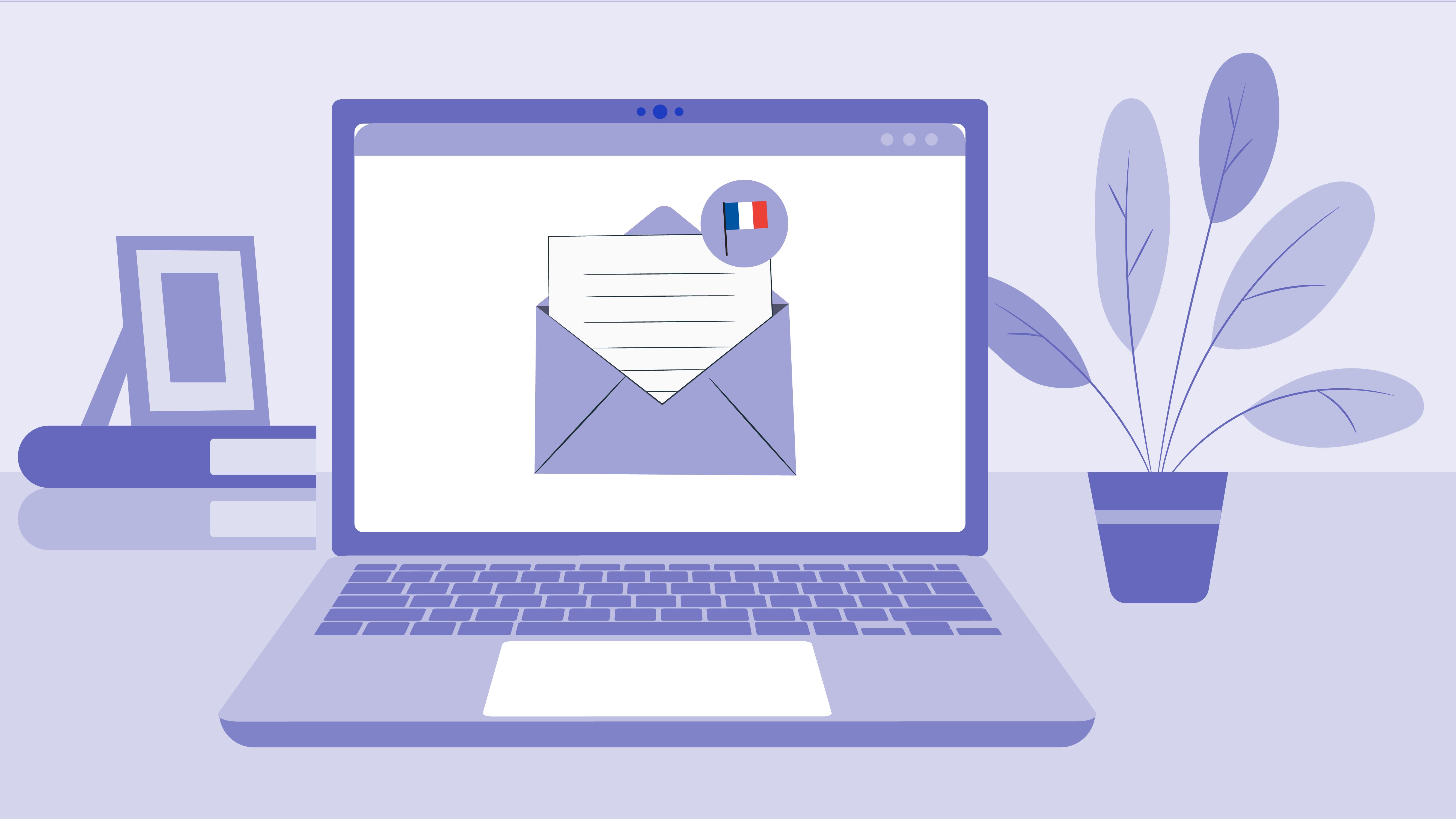
The French Experiment
The French Experiment is a free language-learning website that offers beginner-level French lessons for learners of all ages. The site provides interactive activities and quizzes to help learners practice vocabulary, grammar, and sentence structure.
The site also offers videos, stories, and songs in French, helping learners improve their listening and comprehension skills.
The French Experiment's online French classes are designed to be fun and engaging, with colorful visuals and humorous characters. The site is ideal for learners who want to start learning French in a relaxed and casual environment.
Pros:
- fun, engaging, and free French lessons,
- beginner-friendly,
- provides cultural insights,
- offers audio lessons and video content.
Cons:
- limited content,
- lack of personalization,
- no interaction with native speakers.
Langster
Of course, we couldn’t not include our website on this list!
Langster is an innovative language-learning reader that turns stories into A1-B2 language lessons. It offers instant translations with one tap, audio from native speakers, and grammar explanations for popular languages like German, French, Spanish, and English.
Langster helps learners improve their reading, listening skills, and vocabulary through its engaging content. Furthermore, our extensive Blog section provides a plethora of information on a variety of topics — from vocabulary to French culture tidbits to learning tips!
Pros
- interactive stories turn French learning into a fun experience,
- instant translations with one tap,
- audio from native speakers to help you pick up proper phrasing,
- grammar explanations in every story to develop a better understanding of the French language,
- rotating free stories available even without purchasing a subscription.
Cons
- small fee needed to access all stories at once,
- a limited selection of languages available at the moment compared to other language learning platforms.
Overall, Langster is an excellent choice for those looking for an engaging way to learn a foreign language. With its interactive stories, audio recordings from native speakers, and intuitive translation system — Langster provides an immersive experience for learners of all levels.
The Bottom Line
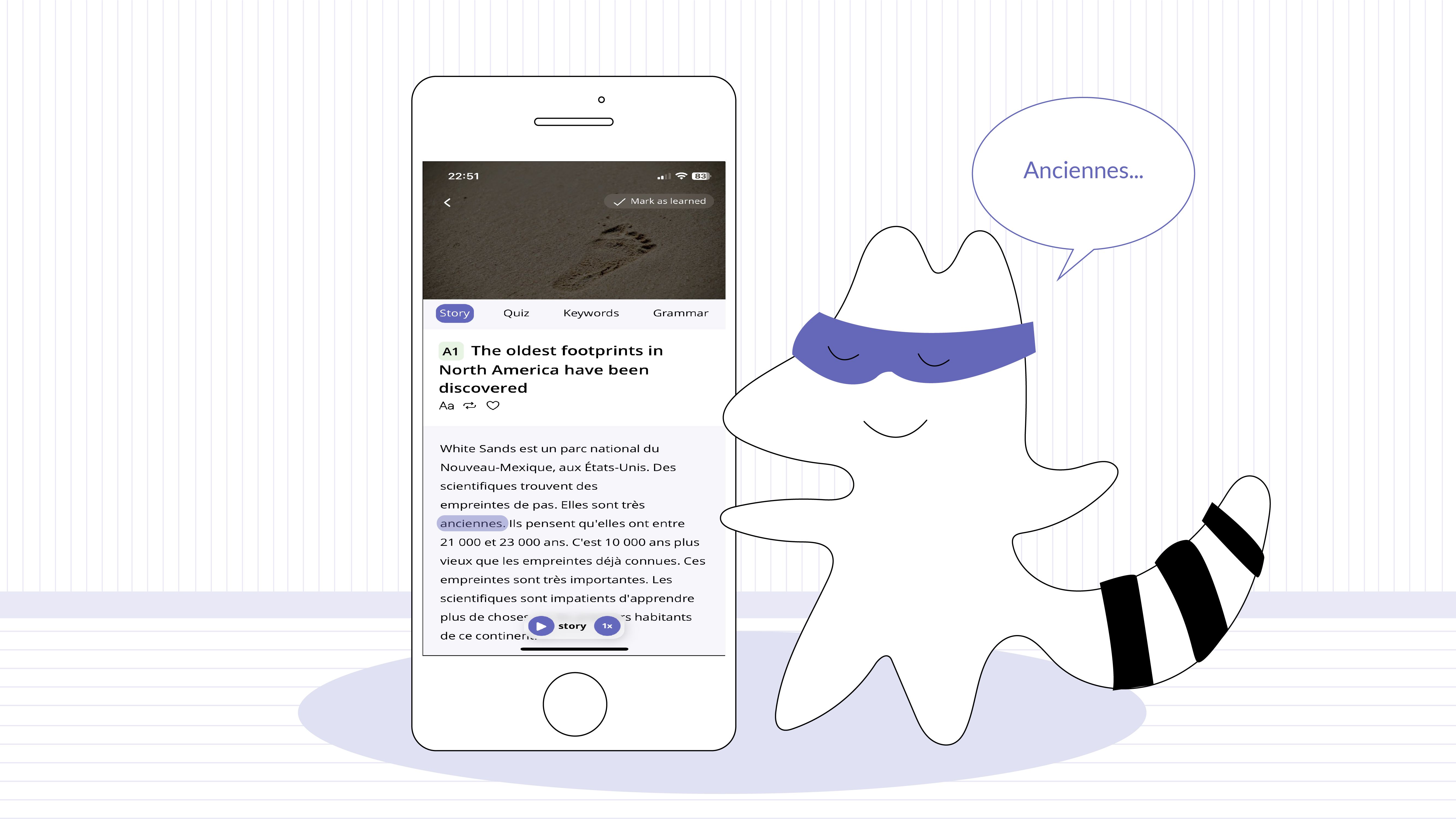
The best websites for learning French cater to a wide range of learning styles, budgets, and goals. Whether you prefer gamified learning experiences like Duolingo, immersive video lessons from FluentU, or an immersive experience from Rosetta Stone or Langster, there's a platform out there for you.
Learn French with Langster
So why wait? Dive into the world of French language learning today and discover the rich culture, history, and beauty that awaits. Bonne chance!







